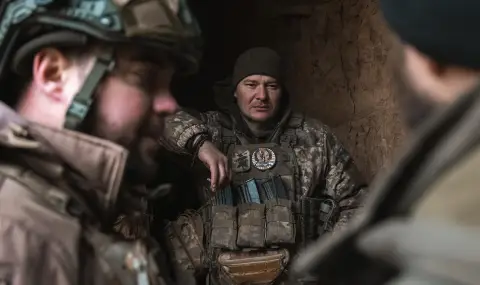The Russian Defense Ministry announced on Monday that the "attempted offensive" by Ukrainian forces towards the village of Bolshoe Soldatskoye, located about 80 km from the regional capital Kursk, has been stopped. Moscow claims that four tanks, two armored personnel carriers, 16 armored combat vehicles and one mine-clearing vehicle were destroyed. This information cannot be confirmed by independent sources.
Both Moscow and Kiev are waiting
As early as Sunday, Russian military bloggers reported about "columns" of Ukrainian combat vehicles. They also shared videos on social media, apparently filmed by drones. Some bloggers claimed that Western precision missiles were also used, but this has not been confirmed. For the time being, neither Ukraine has boasted of success, nor are Russian media actively spreading claims about the offensive and its response. Apparently, there is a wait-and-see process underway to see how events will unfold.
For weeks, military experts have been predicting that Ukraine will launch a new offensive on Russian territory. According to Austrian military historian Colonel Markus Reisner, Kiev will try to show "immediately before Donald Trump takes office" that it makes sense to support Ukraine, he told DW back in December.
According to Reisner, it is still too early to talk about a "real Ukrainian offensive" towards Kursk. “Because an offensive would mean that large formations of the armed forces carry out a full-scale attack to achieve objectives at the operational level“, explains Reisner. “What we are seeing is an advanced counteroffensive involving up to three brigades or just parts of them“.
A bargaining chip in possible negotiations?
It is still unclear what goals Kiev is pursuing with this offensive, but there are several hypotheses. On the one hand, the Ukrainian army is the victim of serious pressure and has already lost about half of the territory in Kursk that it occupied five months ago, explains Reisner. And the 500 square kilometers it controls are currently defended by three different sides. The offensive could be an attempt to "break out of this encirclement."
Military journalist Shashank Joshi of the British "Economist" offers other possible explanations. "The aim could be to put Russian troops on the defensive to prevent their continued offensives," Joshi told DW. Another aim could be to seize additional territory to use as bargaining chips in possible peace talks after Trump takes office. At the same time, the aim could be to divert attention so that a strike can be struck elsewhere.
Marcus Reisner expects more surprises before January 20, when Trump will officially enter the White House. "If you look at the northeastern part of Ukraine, the front is not completely protected by the Russians. There are some territories that would lend themselves to additional pressure to achieve maximum success before possible negotiations,“ he says.
Ukraine's moves are risky, but well thought out
US Secretary of State Anthony Blinken also recently stressed that Ukrainian positions in Kursk are important because they could play a role in upcoming negotiations. However, is it worth Ukraine sending its troops to Russia against the background of serious pressure on the city of Pokrovsk and the western parts of Donetsk region? Kiev's moves are risky, but the political benefits of them outweigh them, experts believe.
“If Russia takes Pokrovsk, it will advance west“, says Shashank Joshi. “This is bad for Ukraine, but it is not certain that it will lead to a qualitative change in the disposition of forces and diplomatic negotiations.“ If Ukraine manages to hold onto parts of the Kursk region, it would be "significantly important". So in this case it is a measured risk, the journalist believes.
It is important for Ukraine to "stay out of the headlines" before Trump comes to power, emphasizes Markus Reisner. The support of the West is extremely important, and such moves contribute to maintaining this support. The Austrian colonel does not dare to predict how much and for how long Ukraine will be able to hold onto its positions in Kursk. Both sides are "weakened in terms of their forces," but if Trump's pressure does not lead to a freeze in the conflict, "the dramatic war of attrition could return in full force," and Russia could gather its forces and slowly push back the Ukrainian army, the expert believes.
Author: Roman Goncharenko
